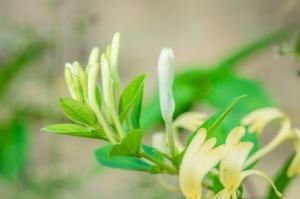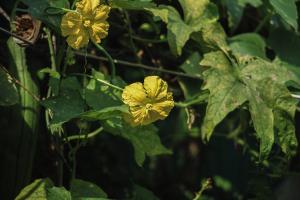Introduction
Lemongrass is a perennial plant that grows in regions with tropical or subtropical climates. It is well known for its lemony aroma and taste, which is the reason why it is used in various culinary dishes, beverages, and desserts. However, lemongrass plants have many other benefits beyond their flavor, and this article will explore some of the most common uses of lemongrass plants.
Health Benefits of Lemongrass Plants
Lemongrass plants have many health benefits that have been recognized for centuries. One of the well-known benefits of lemongrass plants is their potential for reducing inflammation. The essential oils that are found in lemongrass plants contain compounds that inhibit the activity of certain enzymes that cause inflammation. Therefore, lemongrass plants are used for treating arthritis, gout, and other inflammatory conditions.
Another health benefit of lemongrass plants is their potential for reducing fever. During traditional medicine practices, lemongrass plants were used to reduce fever by inducing sweating. By increasing sweating, lemongrass plants help regulate the body's temperature and reduce fever. This property of lemongrass plants also makes them useful for treating colds, flu, and other respiratory issues.
Lemongrass plants have also been linked to anxiety relief. Essential oils derived from lemongrass plants contain a compound called citral, which is known for its anti-anxiety and sedative effects. Therefore, lemongrass plants are commonly used in aromatherapy to alleviate anxiety and promote relaxation.
Culinary Uses of Lemongrass Plants
Lemongrass is a popular flavoring ingredient in Southeast Asian cuisine. In Thailand, lemongrass is commonly used in soups, curries, and stir-fries. Vietnamese cuisine also features lemongrass in many dishes, including spring rolls and grilled meat dishes.
Besides its use in traditional cuisine, lemongrass plants are also used to flavor teas, cocktails, and desserts. Lemongrass tea is a popular beverage in many cultures, known for its refreshing taste and antioxidant properties. In dessert recipes, lemongrass is used to add a subtle citrus flavor to cakes, custards, and sorbets.
Insect Repellent Properties
Lemongrass plants contain natural oils that are effective in repelling insects. Essential oils obtained from lemongrass plants contain citronella, which is a common ingredient in insect repellents. Therefore, lemongrass plants are used as natural insect repellents in gardens, patios, and other outdoor spaces.
Additionally, lemongrass plants are believed to be effective against mosquitos. A study conducted in Thailand found that lemongrass oil was more effective in repelling mosquitos than DEET, which is a common synthetic insect repellent. Therefore, lemongrass plants have the potential to be a natural, safe, and effective alternative to traditional insect repellents.
Conclusion
Lemongrass plants are more than just a flavorful and aromatic ingredient in cuisine. They offer many health benefits, including anti-inflammatory, antipyretic, and anti-anxiety properties. Lemongrass plants are also a natural insect repellent, making them ideal for outdoor use. As you can see, lemongrass plants are one of the most versatile and beneficial plants in the world, and their many uses continue to be explored.

 how many times do yo...
how many times do yo... how many planted tre...
how many planted tre... how many pine trees ...
how many pine trees ... how many pecan trees...
how many pecan trees... how many plants comp...
how many plants comp... how many plants can ...
how many plants can ... how many plants and ...
how many plants and ... how many pepper plan...
how many pepper plan...






























